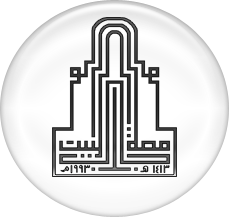| DC Field | Value | Language |
|---|
| dc.contributor.author | أيمن شافي الشرفات | - |
| dc.date.accessioned | 2017-11-22T11:35:35Z | - |
| dc.date.available | 2017-11-22T11:35:35Z | - |
| dc.date.issued | 2015-11-18 | - |
| dc.identifier.uri | http://hdl.handle.net/123456789/1156 | - |
| dc.description.abstract | تهدف هذه الدراسة إلى تسليط الضوء على الدور الذي قامت به مواقع التواصل الاجتماعي في الاحتجاجات العربية الاخيرة 2010 – 2014م، والتي استطاعت الجماهير العربية بواسطة هذه المواقع مناقشة الأحداث السياسية في بلدانهم، ومن ثم التعبئة والاحتجاج على ما يدور من حولهم. وتفترض الدراسة إن ثمة علاقة ارتباطيه بين مواقع التواصل الاجتماعي والاحتجاجات العربية. وتتخذ هذه الدراسة من منهج الاتصال لكارل ديتش منهجاً لها. وقد استنتج الباحث من خلال هذه الدراسة أن مواقع التواصل الاجتماعي كانت مكاناً مناسباً وملاذاً ملائماً للجماهير العربية لمناقشة قضاياهم السياسية بعيداً عن الملاحقات الأمنية، كمان أن الإعلام الجديد وسيلة ساعدت في الاحتجاجات ضد الأنظمة السياسية العربية المتهالكة وليس سبباً. وتوصي الدراسة بضرورة احترام ما يدور في مواقع التواصل الاجتماعي والاهتمام بمرتاديها، وضرورة أن تقوم الحكومات العربية بإصلاحات سياسية واقتصادية واجتماعية ومحاولة إشراك جميع أطياف المجتمع في القرارات السياسية والاقتصادية.
Abstract
This study aims to examine the rules played by social media during Arab protests 2010-2014, which managed the Arab societies to discuss political events in their countries, then mobilized and protest against what was happening around them. The study hypothesis that there is a correlation between social media and the Arab protests. The study used communication approach by Karl Deutsch . The researcher through this study resulted that the social media have been a good place and a haven appropriate for the Arab people to discuss their political issues, without security prosecutions, also that the new media is a way helped in the protests against the Arab crumbly regimes, but it was not a cause. The study recommends the need to respect what is going in social media and give attention to its users, and Arab governments need to make seriously reform in political, economic and social and try to involve all community shades in political and economic decisions. | en_US |
| dc.title | أثر مواقع التواصل الاجتماعي في الاحتجاجات العربية2010-2014م: مدخل نظري | en_US |
| dc.type | Other | en_US |
| Appears in Collections: | المجلد(23)، العدد (1/ب)، 2017م
|

